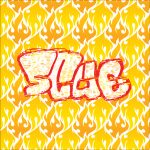
Self-Portraits & Objects workshop with Deanna
Location: Roundhouse, Chalk Farm Road.

Before coming to the workshop, we were told to bring an object that is personal and means something to us. The object we brought later became part of an exercise to ‘dropdown’ and write something personal to us. We started this process by shutting our eyes and feeling our objects in our hands, followed by writing down any thoughts/ experiences that came from it. This then led to us writing a poem from ‘the voice of the object’.
Next, we focused on two poems. The first we reviewed was Sylvia Plath’s poem “Mushrooms”.


“Mushrooms” is a poem about women’s rights by using mushrooms as a symbol for women and their determination. Moreover, it’s a great example of how to use figurative language and metaphors.
Finding inspiration in Plath’s poem we then walked to where Plath lived and offered work up, reading our written poems outload. Reading and receiving work in a different setting was really interesting as it brings a different experience then hearing work in a classroom. Now when coming up with a piece of work I will go into a different setting and see if it feels different or could be received differently.
In the afternoon we then moved onto our self-portraits. We began by drawing ourselves, followed by writing down words that described what we thought our self-portraits resembled. Eventually we narrowed down to one descriptive word. From this we inserted our word into the sentence “if … was a place, colour, food, transport” and then swapped our descriptive word out for “I”, then becoming if “I were a place” etc.
Deanna then showed us examples of Boastful sonnets :


Having been shown examples we then were given twenty minutes to write our own boastful sonnets. We then walked to the top of Primrose Hill to again share our sonnets with each other.
Deanna’s class showed us the importance of being able to use ourselves as a tool of inspiration. There are key parts of ourselves we refuse to let out, so bringing in something personal allows us to open up and use ourselves and objects as inspiration.
Although despite this, it was challenging to translate onto paper what it felt like to open up.
A challenge I experienced was trying not to focus on making your writing sound “perfect”. Overthinking what you were trying to say would often take up much of the allotted time for the exercise. Instead, to just trust in yourself and see what will come out.
This is a valuable lesson to learn; that in the beginning stages to try not restrict yourself and try to have a finished product in the first draft.
This lesson, although simple, is often forgotten as we put pressure on ourselves to try to make everything perfect. Therefore, this lesson of allowing ourselves to trust in the process can be applied in multiple aspects of our work and life.
Setting time limits is also a good way to try and place a structure when coming up with ideas. In the writing exercise we did with Deanna we were allotted time limits. This is a challenge and beneficial as it means you can’t keep trying to perfect your work, but also puts a pressure on you to get out of your head, open up and get something down on paper.
Going forward, as a way to practice and make habit of these skills I will aim to ‘dropdown into an object or myself’ once a day. To create a list of adjectives and to think of if they were a place, colour, food what would they be? This will be useful to try and make opening up a more natural experience in my work.
Overall, having the skill to use yourself or an object as a catalyst for coming up with creative ideas is an extremely useful tool to harness.











